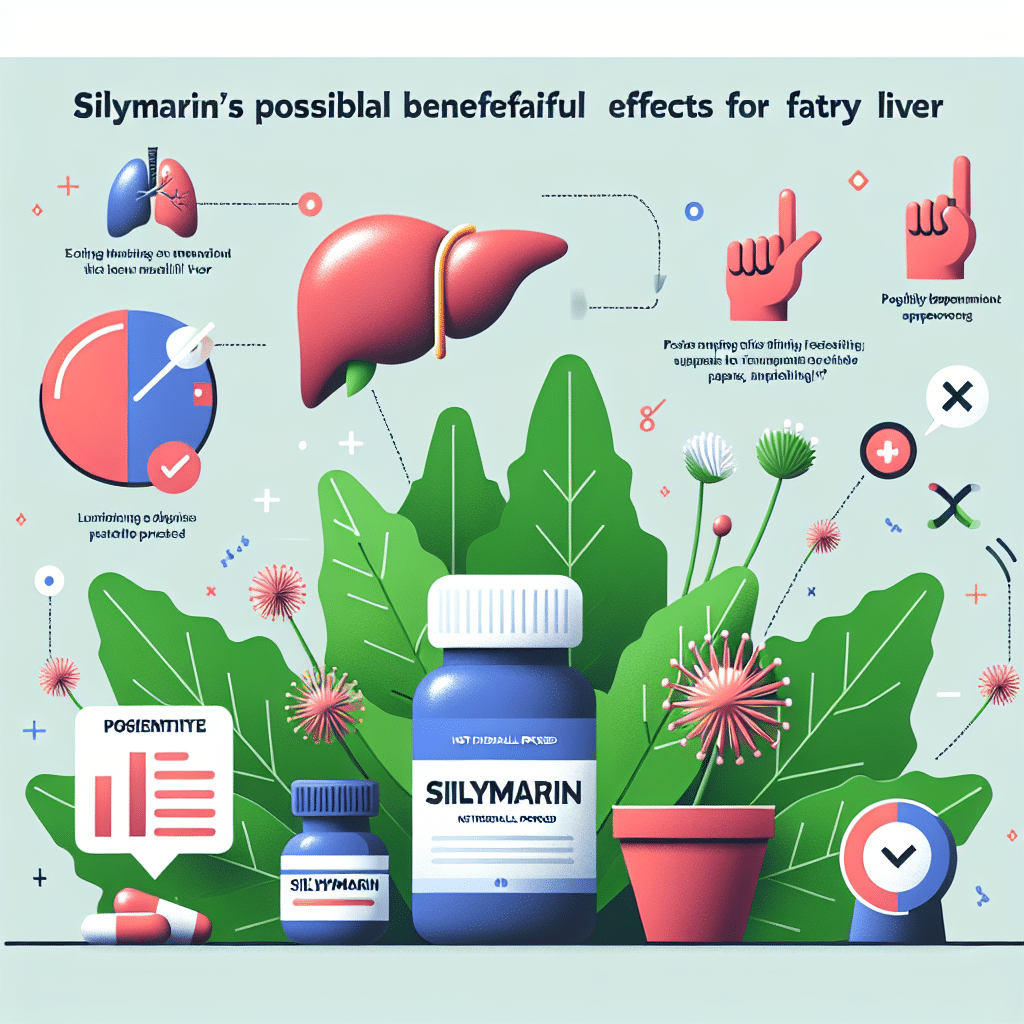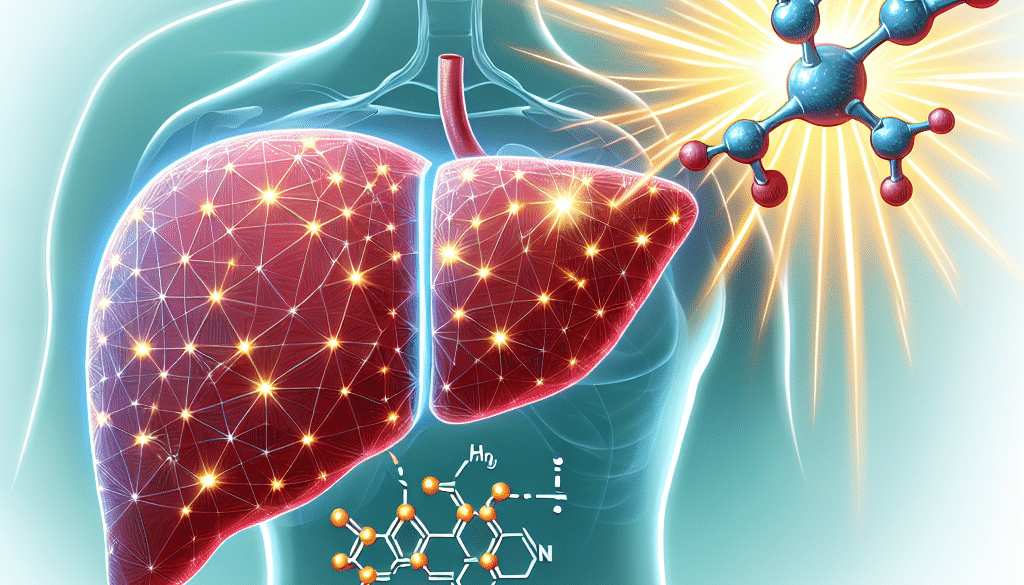Is Silymarin Good for Fatty Liver?
-
Table of Contents
- Silymarin and Fatty Liver: Exploring the Therapeutic Benefits
- Understanding Silymarin: Composition and Properties
- The Impact of Silymarin on Fatty Liver Disease
- Non-Alcoholic Fatty Liver Disease (NAFLD)
- Alcoholic Liver Disease (ALD)
- How Silymarin Works: Mechanisms of Action
- Optimal Dosage and Potential Side Effects
- Real-World Success Stories and Limitations
- Conclusion: Weighing the Evidence on Silymarin for Fatty Liver
- Discover ETchem’s Protein Products for Liver Health
Silymarin and Fatty Liver: Exploring the Therapeutic Benefits

Fatty liver disease, also known as hepatic steatosis, is a condition where excess fat builds up in the liver. This can be due to various factors, including excessive alcohol consumption, obesity, insulin resistance, and more. As the prevalence of fatty liver disease rises globally, the search for effective treatments has become increasingly important. One natural remedy that has gained attention for its potential liver-protective properties is silymarin, a compound derived from the milk thistle plant. This article delves into the scientific evidence to answer the question: Is silymarin good for fatty liver?
Understanding Silymarin: Composition and Properties
Silymarin is a flavonoid complex extracted from the seeds of the milk thistle plant (Silybum marianum). It consists of several components, with silybin being the most active and abundant. Silymarin has been traditionally used for its antioxidant, anti-inflammatory, and hepatoprotective effects. It is believed to stabilize cell membranes and stimulate liver tissue regeneration, making it a subject of interest for liver health.
The Impact of Silymarin on Fatty Liver Disease
Fatty liver disease can manifest as non-alcoholic fatty liver disease (NAFLD) or alcoholic liver disease (ALD), depending on the underlying cause. Silymarin’s therapeutic potential in both conditions has been explored through various studies and clinical trials.
Non-Alcoholic Fatty Liver Disease (NAFLD)
NAFLD is the most common chronic liver condition in the Western world. It is closely associated with metabolic syndrome, which includes conditions like obesity, type 2 diabetes, and hyperlipidemia. Silymarin’s role in NAFLD management has been examined in several studies:
- A meta-analysis of randomized controlled trials found that silymarin supplementation led to significant improvements in liver enzymes, which are markers of liver health.
- Another study suggested that silymarin could reduce liver fat accumulation, inflammation, and fibrosis in patients with NAFLD.
- Case studies have shown that silymarin, in combination with lifestyle changes, may lead to a reduction in liver size and fat content.
Alcoholic Liver Disease (ALD)
ALD results from long-term excessive alcohol consumption and can progress to more severe conditions like alcoholic hepatitis and cirrhosis. Research on silymarin’s effectiveness in ALD includes:
- Clinical trials indicating that silymarin may improve liver function tests in patients with ALD.
- Studies suggesting that silymarin could protect against oxidative stress and lipid peroxidation, which are key factors in ALD progression.
- Research showing that silymarin may enhance liver regeneration and reduce inflammation in ALD patients.
How Silymarin Works: Mechanisms of Action
The hepatoprotective effects of silymarin are attributed to multiple mechanisms:
- Antioxidant Activity: Silymarin scavenges free radicals and increases the levels of glutathione, a potent antioxidant in the liver.
- Anti-Inflammatory Effects: It inhibits the release of pro-inflammatory cytokines and modulates immune responses.
- Anti-Fibrotic Action: Silymarin may prevent the deposition of collagen fibers, which contribute to liver fibrosis.
- Enhancing Insulin Sensitivity: It improves insulin resistance, a common feature in NAFLD.
Optimal Dosage and Potential Side Effects
The recommended dosage of silymarin varies depending on the form and concentration of the product. Clinical studies have used doses ranging from 140 to 300 mg of silymarin, taken two to three times daily. While silymarin is generally considered safe, some individuals may experience mild side effects such as gastrointestinal discomfort, allergic reactions, or headaches.
Real-World Success Stories and Limitations
There are numerous anecdotal reports and patient testimonials regarding the benefits of silymarin for fatty liver. However, it is important to note that while these stories provide hope, they do not replace the need for well-designed clinical trials to establish efficacy and safety conclusively.
Conclusion: Weighing the Evidence on Silymarin for Fatty Liver
In conclusion, the current body of research suggests that silymarin has potential benefits for individuals with fatty liver disease, particularly in improving liver function tests and reducing inflammation. However, more extensive and rigorous clinical trials are needed to fully understand its therapeutic role and to establish standardized dosing guidelines. As with any supplement, it is crucial to consult with a healthcare provider before starting silymarin, especially for those with pre-existing medical conditions or those taking other medications.
Discover ETchem’s Protein Products for Liver Health
For those interested in supporting liver health through dietary supplements, ETchem offers a range of high-quality protein products. Their extensive selection includes various types of collagen, which may complement the liver-protective effects of silymarin by promoting tissue repair and regeneration. ETchem’s commitment to quality ensures that you receive the best products to support your health and wellness goals.
About ETChem:
ETChem, a reputable Chinese Collagen factory manufacturer and supplier, is renowned for producing, stocking, exporting, and delivering the highest quality collagens. They include marine collagen, fish collagen, bovine collagen, chicken collagen, type I collagen, type II collagen and type III collagen etc. Their offerings, characterized by a neutral taste, instant solubility attributes, cater to a diverse range of industries. They serve nutraceutical, pharmaceutical, cosmeceutical, veterinary, as well as food and beverage finished product distributors, traders, and manufacturers across Europe, USA, Canada, Australia, Thailand, Japan, Korea, Brazil, and Chile, among others.
ETChem specialization includes exporting and delivering tailor-made collagen powder and finished collagen nutritional supplements. Their extensive product range covers sectors like Food and Beverage, Sports Nutrition, Weight Management, Dietary Supplements, Health and Wellness Products, ensuring comprehensive solutions to meet all your protein needs.
As a trusted company by leading global food and beverage brands and Fortune 500 companies, ETChem reinforces China’s reputation in the global arena. For more information or to sample their products, please contact them and email karen(at)et-chem.com today.




